Michael Organ interviews Anant Mishra, human rights and political commentator, prolific author and former youth representative to the United Nations.
Tuck Magazine: Anant, tell us first of your upbringing and how you came to be associated with the United Nations.
Anant Mishra: I come from a middle class family, who struggled in their initial days and taught me numerous important lessons of life. As a prominent saying “Empty stomach, empty wallet and a broken heart teaches us the best lessons in life”, my foundations were laid quiet early.
TM: You have written over 50 articles for Tuck Magazine, in addition to numerous others in various publications globally, each dealing with the important issues the world faces. Are you frustrated with the apathy and indifference of not only the mainstream media with regard to raising and questioning these issues, but the general public’s apparent lack of interest also?
AM: I am not frustrated, but yes, the public needs to understand the importance of such issues and its effect on them. We tend to see a lot of discussions and debates on some crucial topics, but at the end all we see is discussions going haywire. My neighbours, my community, my friends, need to understand the issue, such as, the humanitarian crisis in the EU and its implications on them, which is only possible when the global media shows it and discusses it more. On a general note, we need to focus more on international agendas. Who decides the intensity and weightage of the news? Whatever is happening out there is important, it affects us directly or indirectly. So, for me Ebola and refugee crisis requires the same coverage.
TM: In terms of mainstream media coverage of these important issues, how would you change things?
AM: Everything gets equal weightage. Discuss the impacts and threat assessments of militancy in Syria with a similar weightage to refugee crisis in Europe or global food security crisis. We need to educate more people on some crucial issues, and that’s how I would have done it.
TM: With drought and hunger continuing to be a factor in many parts of the world what in your opinion can the United Nations, world leaders and policy makers do in terms of immediate and long terms plans?
AM: In a recent article for Voices of Youth, I have stressed the importance for the United Nations to create a specific policy for hard poverty hit nations. When you closely monitor the food crisis, every nation suffers differently. They suffer with a variety of reasons unique from other poverty hit nations. But if you carefully look at each of the national policies governments have created to fight poverty, you will find the exact same steps in all of them.
For the United Nations and its agencies, food security needs to be looked through a multidimensional prism. Malnutrition, unemployment, improper growth, and poor education turn outs are all inter-related. While dealing with a multidimensional problem, the discussions and resolutions should be multifaceted too. It’s just not food security we are addressing, it’s the whole bunch of issues that occur due to food insecurity; that’s our enemy. I appreciate the successful launch of Sustainable Development Goals and the UN’s efforts behind this, but I also urge policy leaders to assist regional governments in creating a concrete policy on food security with either respective to the nations hard hit by poverty or by taking a continent as a whole.
Issues such as malnutrition and unemployment which are a major benefactor to food insecurity can simply not be addressed by Sustainable Development Goals, at some point, the UN has to take a much more aggressive action towards it. I urge policy makers to reinforce the UN’s SDGs by creating viable and concrete strategies for independent nations for this multifaceted issue. UN agencies have to liaise with officials of the governments in creating long term strategy. We know the seasons where drought affects the most and for an immediate action, agencies of the UN should run pilot projects in most drought effected regions in most affected countries.
UNICEF Ethiopia/2015/Bindra
TM: The United Nations is currently undergoing a selection process to determine a new Secretary General to take over from Ban Ki-moon at the end of the year. Following the reigns of his predecessors Boutros Boutros-Ghali and Kofi Annan, what do you feel a leader should bring to the UN and do you have any preference from the nine candidates who have been shortlisted?
AM: The Secretary General of the United Nations is one of the most important positions with over 193 member countries and the entire world looking up to. Flexibility is something that the UN needs. More than that the UN needs to monitor and evaluate the progress made by their own agencies. This will bring transparency. The next appointed Secretary General will be facing some major challenges which we haven’t witnessed since World War II. With ISIS in the East, human rights violations in Syria and ISIS controlled areas, humanitarian mayhem in Europe and the influx of refugees through Greece; the UN already has a lot on its plate. Moreover, the UN has still not been able to define terrorism nor is there a counter terrorism task force, these are some of the challenges the new SG will have to address. I witnessed some strong policies Helen Clark made as the head of UNDP. She has all the qualities of a Secretary General.
TM: The plight of refugees is a daily feature on most mainstream news networks around the world at present, one nation or their leader seemingly intent on welcoming or refusing immigrants according to political tides. What are your thoughts on the current situation with regard to Syria and Europe and how do you see this progressing?
AM: The human rights violations in Syria are escalating. I would also like to support the fact by stating that more than 100 rebel groups are currently operating in and around Damascus. The situation is fragile. With Daesh fighters on the borders, human rights will be violated. Syria is the epicentre of all. The refugee camps are overcrowded, with the lack of basic amenities and more importantly security, refugees are forced to flee. The only possible solution is to deploy a monitoring and evaluation team on the ground and declare a cease fire among the rebels. It is impossible to simply ask the rebel groups to drop their weapons and go home, thus the only practical solution is to bring them to a discussion table and discuss the future of Syria. Until and unless we don’t implement a ceasefire and initiate the process of dialogue, we won’t be making any progress even on the refugee crisis in Europe.
Men, women and children crossing the rough Mediterranean Sea in a desperate attempt to have a better future in developed economies. The influx is heavy, much more for many of the countries to handle. During another discussion, a diplomat quoted that there was no space left to accommodate the refugees. These are very difficult times and to make concrete and effective decisions is what the EU has taken now. I appreciate Angela Merkel’s efforts, she stood in times where nations would have failed to protect the simple existence of human life, just to secure their own. The EU has done a splendid job in saving these many lives, taking tough decisions. I commend the heroic efforts of enforcement agencies in turning these decisions into actions. Their hold on to human life protected others while sacrificing their own.
I understand that within the EU there were tough times, nations argued among them, many strengthening their borders, but they did what they thought was right. These reactions tend to happen when you are in a situation you have never experienced before.
Their progress relies on UN agencies’ resettlement and rehabilitation of those who lost their entire village and shattered homes. People cannot go back to their homes, they have no homes, all they have is hope to survive in a developed economy and thus they take such risks and cross over to Europe. UN agencies should immediately work on policies for rehabilitation and resettlement but before this a ceasefire is absolute.
Andrew McConnell/Panos
TM: Being an astute political commentator, you are more than aware that the mainstream media tends to focus on issues around the world when politically convenient to do so. With this in mind, how do you feel about the relative lack of coverage for ongoing conflicts elsewhere in the world, eg. Democratic Republic of Congo, Central African Republic, Somalia, South Sudan, etc?
AM: With Al Shabaab in Somalia and Boko Haram in Nigeria, these nations are combatting the same enemy with a different name. The Sudan and South Sudan conflict is yet another example of that. The West needs to understand the need in assisting these nations in combating terrorism. Lack of interest will then lead to another ISIS. This is precisely what the member nations of the UN, especially the power nations, need to bring their attention to with regard to on-going conflicts here. I remember the time when Boko Haram kidnapped over 300 girls in Nigeria and then the world came together and protested through Social Media and other means. Do we hear anything now? Because the attention has been shifted to ISIS and the EU refugee crisis. Issues such as these need to be taken seriously. We need to be united.
TM: Human Rights is one of the main focuses of Tuck Magazine and we are keen to give a voice to as many as possible from around the world that may not necessarily be heard elsewhere. In your experience with the United Nations, are there any areas you feel that may be improved in this respect and how would you go about doing so?
AM: In international relations, there is a literal term “Frozen conflict”. Today, Crimea has become a frozen conflict, intense fighting along the borders of Georgia being yet another example of a frozen conflict. This term first came into existence after the Darfur conflict. Today, almost 25 years later, the conflict is ongoing. These are issues simply out of the media. A recently graduated foreign officer will not even know the parameters of this conflict, because policy makers don’t discuss issues such as these anymore. Issues such as these become massive hurdles during discussions and peace making processes. The UN needs to do some important changes in its planning and monitoring processes.
TM: World poverty is currently at an alarming level, almost half the world, over three billion people, living on less than $2.50 a day, with at least 80% of humanity living on less than $10 a day. Given the financial divide the world over, what can policy makers and leaders do to eradicate this?
AM: Today, there are a variety of resources which policy makers can use. Entrepreneurship is one. Encouraging women entrepreneurs and providing them with necessary training and making them skilled acording to the market today, will create ample economic opportunities. They will empower people. On most occasions I have supported the idea that women are the key source to increase the standards of living of their homes. Empowering them will be highly effective. Policy makers should then invite private entities to become a partner in rural development. Today, the migration of people from rural to urban areas is a key source of poverty. They then face the harsh reality of unemployment and then are forced to do odd jobs and suffer from acute poverty. This can be targeted effectively by reinforcing technical training institutes, by inviting private entities in providing necessary skill to people and by partnering them in development through Public Private Partnership. Policy makers should target the migration of people in rural areas and focus development by creating employment opportunities in rural areas. Strengthening the agriculture sector and mechanisation will prove to be effective and efficient.
Daniel Berehulak
TM: What hopes are there for peace throughout the world when corruption, power and oil continue to be a major fact for all?
AM: “Men have always found war, but after war, men have always found peace”. The world is a beautiful place, with beautiful beings. There is much for us to achieve. It is true that with corruption, power becomes corrupt and one who controls the flow of oil, takes the world hostage. But with great powers comes great responsibility, this is a concept that every policy maker understands. Peace is eminent and from our history, we have understood the importance of cooperation and coordination. Hope is there, we have witnessed some tragic incidents in the past and when tested, we were always united, and we will continue to do so.
TM: We here at Tuck Magazine have made no secret of our lack of confidence for all candidates involved in the American Presidential Election. What are your own thoughts on this and how do you see the United States and world politics in one year’s time?
AM: For a leader, the first quality is the control over his/her speech. I have always expressed discontent towards those leaders who spoke without giving it a thought. A leader does not have to be well read or knowledgeable, a leader has to accept what others say, take their ideas into account, acknowledge with firmness and respect and then speak his/her words with humility, confidence and clarity of mind. I will not follow a leader who will think too much before taking a decision, I will follow a leader who will take a decision and then assess his/her decision. This is precisely the reason why I would see Former Secretary of State Hillary Clinton as the next President of the United States. She has gained enormous experience during her time as FLOTUS and then the Secretary of State. More importantly, I can see a clarity in mind. She knows what needs to be done.
TM: In addition to the current refugee crisis, Europe is a regular hot topic of discussion for many around the world. What are your thoughts on the forthcoming Brexit vote in England to stay in or leave the European Union and how do you see Europe changing following this?
AM: That is another crucial decision which Prime Minister Cameron has to make. The decision lies on what the people of Britain want, because it will affect them directly. I think it’s between Prime Minister Cameron and the people of Britain to decide. Europe will witness some drastic changes if Britain opts to exit the EU. It will affect the power the EU has and with Britain out, the EU will face tough times. The recent struggle with Gazprom, Russia’s leading energy entity and with Britain gone, the political economics of the entire conflict may shift. Today, Russia is supplying energy to the EU and if the gauge is closed, EU will be forced to face some harsh winters. Britain’s presence itself in the EU made a significant impact on decisions before policy makers sat down at the table, but if Britain opts out, the EU will be losing its ace card. The equation will be out of balance, as the EU will then be forced to find a contender to replace Britain. Those nations willing to join the EU will think twice if Britain exits. Moreover, looking on the economic side, there will be heavy instability in the markets. If Britain decides to exit from the EU, it will be forced to address another referendum of Scottish independence. Prime Minister Cameron will be facing some tough challenges.
TM: What are your thoughts on Indian Prime Minister Narendra Modi and his policies with regard to terrorism, Kashmir, national politics, etc?
AM: Prime Minister Modi has been taking some tough decisions lately. Terrorism is condemned in all its forms as it is also by the government of India. He tends to act on some of the major issues India has been struggling with since its independence. He initiated the Beti Bachao, Beti Padhao, which focussed on the importance of girl’s education. He then initiated Digital India, while connecting different parts of the country digitally. Earlier, it was very difficult to identify the number of policies and initiatives that state and the central government had taken, but now, it is there on the website. Moreover, his passion to bring different stakeholders together is inspiring for every policy maker. He is addressing some of the major issues whether it is rural development, urban or development of various sectors, which were somewhat lost in previous decades. With ease of governance, Prime Minister Modi has answered all those who talked about transparency and flexibility. You are free to make an appointment with any policy maker you want to interact with. The doors have been opened. He brought change, which many hoped for. Look at world opinion on us. A few years ago we were on the fifth or the sixth page of the local foreign newspaper, now we are making the headlines. Global perception towards India has changed.
TM: Terrorism and security are understandably at the forefront of everybody’s conscience around the world, given the recent rise in ISIS, Boko Haram, etc, and increase in attacks across Europe, the Middle East, Asia and Africa. What are your thoughts on the current situation and any feelings on how this could change and peace finally be achieved?
AM: Power nations and UN agencies should create or identify concrete, viable and long term solutions. As I said, terrorism in any form cannot be tolerated and the only way to attain peace is by eliminating them from the roots. Policy makers need to relocate their resources to combat terror not only on the fronts making the headlines today, but on all sides of the conflicts that do not reach the daily newsroom. The situation today is fragile. Nations think they can eliminate terror in their country, rather these nations have terror organizations breeding in their own backyard. Effective planning is absolutely necessary, coordination and cooperation with state resources and national law enforcement agencies is important. It is important for policy makers to understand that collectively fighting the same enemy will uproot militancy. Sharing of intelligence timely with better coordination is a key to combat terrorism effectively. It affects us all, and we can achieve peace by inviting agencies and stakeholders to eliminate terror organizations once and for all.
SANA / Syria
TM: Islamophobia is sadly now on the rise throughout the world. Given the increase in right wing factions in Europe and the United States, among many others, not to mention the apparent rhetoric employed in major political campaigns of late, Donald Trump for one springing to mind, how do you see the world changing for the better or worse in its wake?
AM: Not all Muslims are terrorists, let us understand this fact very clearly. These reactions coming from key stakeholders and policy makers is because they are unable to understand that peace does not simply mean eliminating one community that prays to Allah. Peace means living with other communities without violence. Islam never propagates violence, the preachers with absolutely no knowledge of Islam, in the name of Islam, do. You fear a situation which you don’t understand, and then you try to look at a perspective which you never have, and in times like this you do anything in the name of defence. This is absolutely incorrect. I urge people not to take violence into their own hands and go against a community that prays to Allah. I urge political leaders not to use religion as a tool for votes. Using religion as a political commodity is what Islamic leaders do to preach terror. The only difference is they use this for violence, political leaders use this for votes.
TM: Climate Change is another urgent and important issue worldwide. What are your thoughts on the UN’s Sustainable Development Goals with regard to this and what would you add or change, if at all to improve matters?
AM: I commend the policy makers within the UN and other UN agencies for initiating the Sustainable Development Goals. However, I request these agencies monitor the progress of nations and assist those nations who are have difficulty in achieving these goals. It is important for us to achieve these goals today, not later or in future and to do that, policy makers with the UN should assist regional government agencies in creating viable solutions and then reinforcing them with concrete applicable policies. This is how we will be able to achieve the SDGs.
TM: Hypothetically, if you were in the position of Secretary General of the United Nations, what three areas or policies would you adopt or improve in order to change things for the better?
AM: I would first address the United Nations Peacekeeping Missions. There is an absolute need to reform the peacekeeping missions in light of the events escalating today. Then I would call for an immediate session in an effort to establish a key counter-terrorist assisting agency with respect to nations affected by the same. I would then focus my attention on initiating peace in the Middle East while effectively addressing policies for the same, while defining effective rehabilitation and reintegration policies, in an effort to lessen the pressure on the European Refugee crisis.
TM: Thank you Anant, it has been a privilege to publish your words in Tuck Magazine, educating and informing our readers accordingly.
AM: It’s always been a privilege. Thank you for giving me the opportunity here.
Read more of Anant Mishra’s articles in Tuck magazine here.
Michael Organ
Editor and Publisher, Tuck Magazine
Anant Mishra
Anant Mishra is a security analyst with expertise in counter-insurgency and counter-terror operations.

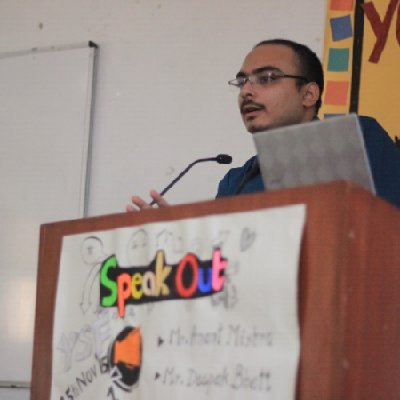
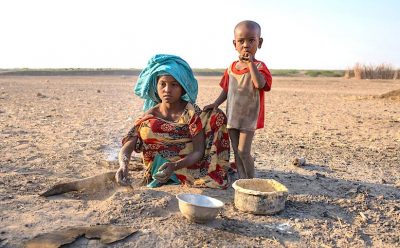
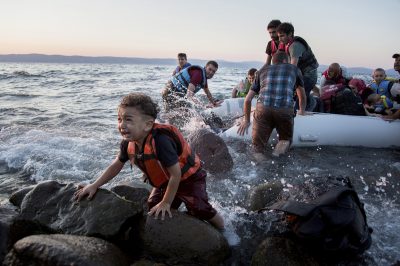
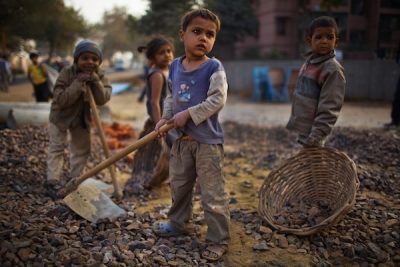
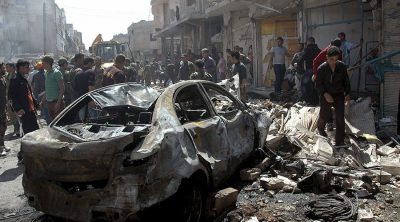

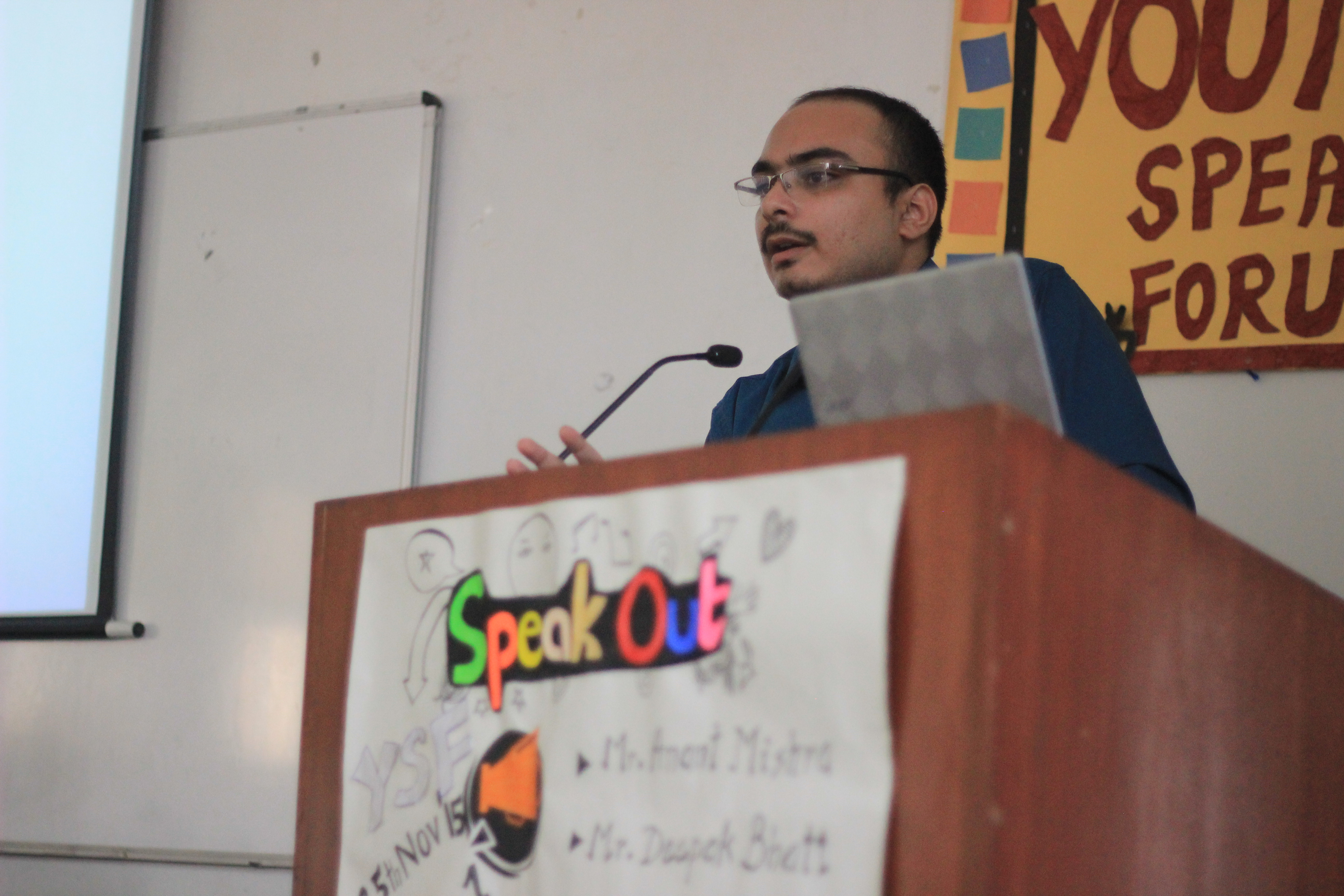
No Comments Yet!
You can be first to comment this post!